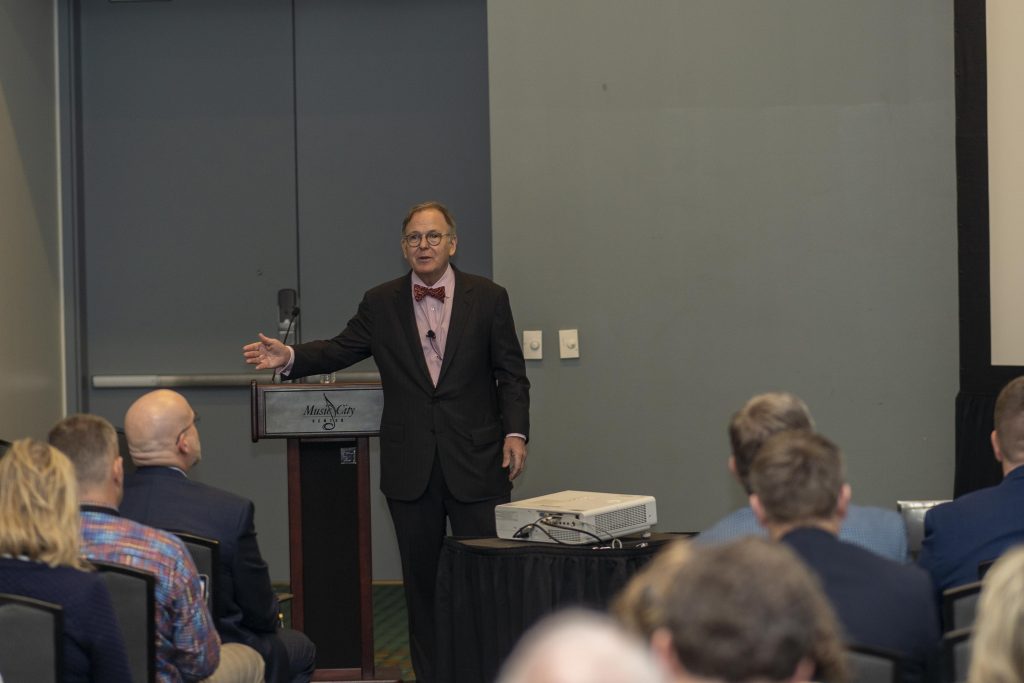Douglas Reeves wants superintendents to know that implementing change in schools does not come solely from inspirational messages, but through what he calls the “science fair approach.”
Put the focus on collaboration and experimentation, Reeves said, and stray away from trying to get everyone on board with the latest fad.
In his presentation, “Deep Change: A Model for Renewing and Strengthening Schools,” at AASA’s National Conference on Education Thursday morning, the Boston-based author and researcher asked attendees to question whether their approach to learning has changed since 2019, and if it hasn’t then “we’re pretending like COVID didn’t happen.”
Reeves, who is CEO of Creative Leadership Solutions, shared ideas appearing in his 2021 book Deep Change Leadership.
Over the past two years, school districts have faced a drastic teacher shortage, causing superintendents to question what went wrong. The leading cause for their departure, Reeves said, is not money but a lack of respect.
How can school districts earn back that respect? By paying attention to what teachers need and not wasting time, he suggested. Superintendents don’t need to conduct long meetings, longer assessments and extensive evaluations, they need to collaborate with teachers and put the focus on in-classroom productivity.
This model also can be used to address the failure rate of students. Students aren’t motivated by choice, Reeves said, they are motivated by competence. He compared this to a video game, saying kids play and fail but continue to play because they steadily get better.
And banning the average is the first step towards reducing student failure, he said, illustrating the point with the example of an Olympian receiving a medal. These athletes aren’t judged on the mistakes they made one year ago, so why, he asked, are students being subjected to that kind of scrutiny? Instead, teachers should evaluate based on proficiency and growth, he said.
And while they are adjusting how they assess student performance, Reeves wants teachers to keep as much practice by students as possible.
The leading cause of student failure is missing assigned coursework, Reeves said, because home isn’t always as conducive to learning as the campus.
Getting disengaged students involved is another change, Reeves said, is pivotal to success. Student leadership is most important in middle school and high school and getting them excited about one or two activities can raise morale and student engagement significantly.
The COVID-19 pandemic forced students, teachers and administrators to turn to technology and new learning methods to keep students from tuning out during virtual learning, but as the world returns to in-person learning, positive developments must follow in school.
And though Reeves has a lot of answers, he doesn’t have all of them, and he hopes conference attendees will challenge him.
“This is a safe place for divergent thinking,” he said.
(Sarah Maninger is a senior journalism major and sports administration minor at Belmont University and a reporting intern with AASA’s Conference Daily Online.)


